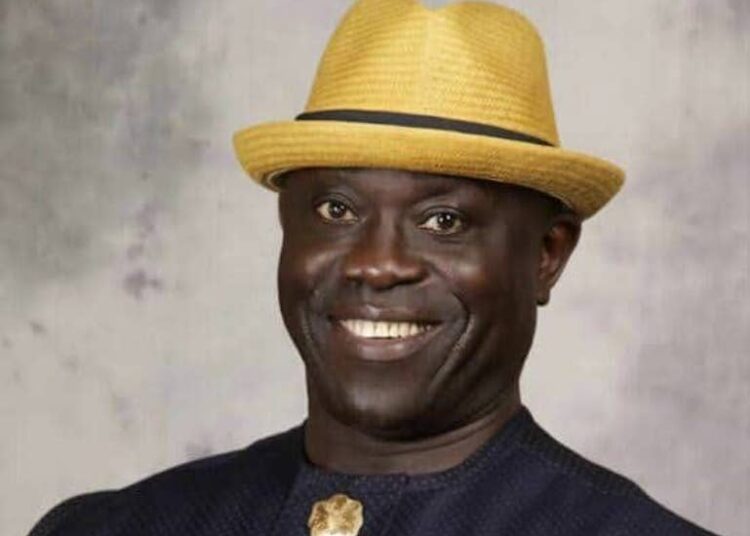Established in 2009, the Presidential Amnesty Programme (PAP) aims to transform ex-agitators into entrepreneurs and/or employable citizens who will become net contributors to the economy of the region and the country through effective collaboration with relevant public and private institutions and state governments in the region.
13 years down the line, the programme has recorded some achievements but not without controversies regarding its management. The Amnesty Programme from conception is structured to run in three phases- Training, Empowerment, and Engagement, after which the beneficiary is expected to exit. Sadly, the 30,000 figure after 13 years has continued to increase rather than reduce.
There are allegations that a lot of people have fed fat from the PAP, many of whom have become ‘billionaires’, this may not be unconnected with the reason the federal government is considering scrapping the programme. There are also allegations that the main agitators who really fought, are not part of those who are billionaires today.
The rot in the PAP office and the federal government’s intention to wind down are clear indications that the Interim Administrator has a herculean task ahead. It was for this very reason that President Muhammadu Buhari appointed Maj-Gen. Barry Ndiomu (rtd) in September 2022 as the Presidential Amnesty boss.
General Ndiomu who replaced Colonel Milland Dikio (rtd) as the Interim Administrator hails from Odoni in Sagbama local government area of Bayelsa State, and was admitted to the Nigerian Defence Academy as part of the 29th Regular Combatant Course. He was commissioned Second Lieutenant in 1983.
He held several command and staff appointments in the course of his successful military career and retired in December 2017. Ndiomu also trained as a lawyer, is an alumnus of the National Institute for Policy and Strategic Studies, Kuru, near Jos in Plateau State; Administrative Staff College of Nigeria, Badagry, Lagos State; Harvard Kennedy School and George C Marshall Centre for European Security Studies, among others.
A few months into his reign, the federal government mulled winding down the programme, a development that generated a lot of reactions from stakeholders in the region.
General Ndiomu is said to have met over N90billion debt on ground upon assumption of office as Interim Administrator of the Presidential/Amnesty Programme.
The programme has on its list about 30,000 ex-agitators who were captured at the inception of the scheme in Obubra, Cross River State when they agreed to drop their arms.
They were calls for General Ndiomu’s sack, a development many consider a distraction from the task of repositioning the programme toward achieving its set objectives. Pundits believe the Amnesty boss is being blackmailed because he came on board to stop their ‘business as usual’.
Ndiomu’s emergence was greeted with rising anger over the future and relevance of the PAP following the reported plan by the federal government to terminate the 13-year-old programme. In the thinking of the government, the scheme had outlived its usefulness and had substantially failed to address the quantum oil theft in the Niger Delta by malevolent elements and other sundry crimes, which have put the region on edge despite the sustenance and prevalence of PAP. There was also heightened tension among leaders of the region and particularly the 30,000 individuals who claimed to have dropped their guns for peace and have been receiving monthly payments of N65,000 from PAP since 2009.
General Ndiomu has since assuming office beaten down the 30,000 ex-agitators lists by over 1,900 persons. The move is to further save costs for federal government, as these dismissed persons will no longer be on the payroll for stipends.
He inherited about N4.5billionn debt owed to contractors but has been able to renegotiate with the contractors to the tune of N1.3billion, thereby saving Federal Government more costs.
The Interim Administrator’s greatest task was to make the federal government see reasons why the PAP should be redesigned as a Social Investment Programme, rather than winding it down totally, due to the outcome of stakeholders’ engagement.
The General with a track record of excellence in his military career. That may have triggered PMB to appoint him at this critical time as the Interim Administrator of the PAP.
Over the years, the PAP has not created much value in terms of employment and engagement of the trained ex-agitators. There are massive projects and investments that have been carried out in the Niger Delta, especially in the Oil and Gas industry, but with little or no strategic measures to engage these trained ex-agitators.
Critics say the Programme has failed to achieve its set objectives in view of the fact that majority of the ex-agitators after training remain not engaged in any productive ventures.
They also say if Tompolo, NNPC, and other stakeholders had leveraged on the Training and engagement of the ex-agitators in the Pipeline Surveillance Contract, it would have reduced the number of untrained ex-agitators and it would have been a win-win situation.
The numbers will be trimmed down, just as more value would have been created for the federal government.
Part of the issues ravaging the programme according to critics is the situation where non-Niger Deltans, including those from the north, hold sensitive positions contrary to what holds in Northeast Development Commission, where one would hardly find any Niger Deltan working there, but in the Presidential Amnesty Office,
The federal government recently rescind the decision to wind down the Presidential Amnesty Programme following efforts made by the new Interim Administrator of the Presidential Amnesty Programme (PAP), Maj. Gen. Barry Tariye Ndiomu (rtd).
His commitment and desire to recalibrate the programme into a more effective and efficient agency made the government to consider the continuation of the programme despite calls.
Gen. Ndiomu, in a statement, issued by his media consultant, Donu Kogbara, expressed gratitude towards the federal government for listening when he made it clear that critical stakeholders across the region were strongly opposed to the winding down of the PAP.
Gen. Ndiomu commended President Muhammadu Buhari for giving listening ears to the people of the Niger Delta, adding that the new decision demonstrates the sensitivity of the President Buhari-led administration to issues affecting the Niger Delta people.
He said President Buhari was more interested in taking further Proactive steps to re-engineer the programme in such a way that would benefit the people of the region, with particular reference to the ex-agitators whose sacrifices birthed the amnesty programme in 2009.
The Interim Administrator also thanked the critical stakeholders in the region for being so supportive since his assumption of office, pointing out that the various views and advice from stakeholders during his consultative meetings across the region were very useful.
According to Gen. Ndiomu: “The Presidential Amnesty Programme will be re-engineered towards ensuring that its original mandate is fully realised, culminating in a gradual phased winding down of the Programme shortly”.
The statement reads in part: “The Federal Government has heard the concerns of Niger Delta people and, with our best interests at heart, has decided to shelve an unwanted termination agenda and transform PAP into a more sanitized, transparent, efficient, robust and sustainable entity.
“Following wide consultations with the ex-agitators across the Niger Delta and the subsequent feedback to the federal government, the administration of President Buhari has been magnanimous in shelving the idea of winding down the Programme. Rather, the President is determined to ensure that the Amnesty programme is re-engineered to achieve its original mandate,” Gen. Ndiomu stated.
“The decision was taken after the feelings of stakeholders and people of the region were communicated to the government and proves that the Buhari’s administration will not do anything to jeopardize the peace in the Niger Delta. The government weighed the arguments presented, based on their merits, and decided to suspend the planned shutdown.
“We call on all stakeholders to sustain the peace in the region and help the new administration to reform, refocus and reposition the programme for optimum performance,” he said.





